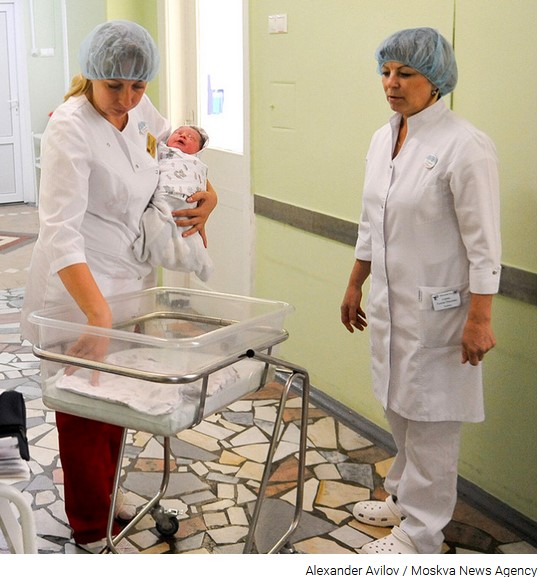
STRATEGIC ASSESSMENT. Female students in Russia’s republic of Karelia will be paid 100,000 rubles ($1,100) in exchange for giving birth to a healthy baby, according to a new decision by regional lawmakers.
Experts warn that the policy — one of several across Russia aimed at boosting the country’s flagging birth rates — is an insufficient and short-sighted tool given the country’s lack of protections and ideal economic conditions for new mothers.
The childbirth incentivization policy, which enters into force on Jan. 1, 2025, requires that a mother must be a full-time student at a local university or college, under 25 years old and a resident of Karelia.
The law clearly states that the bonus is not available to mothers who give birth to a stillborn child, but does not mention whether the payment is revoked if the child dies from Sudden Infant Death Syndrome.
The policy does not specify whether young mothers who give birth to children with a disability are eligible for the payment, nor does it state if they will receive additional bonus payments to help with the costs of child care and postpartum recovery.
The legislative changes come amid growing pressure on Russian women to have more children as the country confronts a demographic crisis exacerbated by high casualties in Ukraine and a wartime exodus of citizens abroad.
This includes government committees exploring new methods to ban contraceptives such as condoms; government-supported “family parades” filled with nationalistic rhetoric and anti-Western sentiment; and calls to ban “child-free” rhetoric by labeling it an extremist ideology.
President Vladimir Putin has called for families of three or more children to be considered “the norm” and said that natalist policies must become a “guideline for state strategy.” The president is reported to have fathered children out of wedlock with multiple partners and has not acknowledged their existence publicly.
At the same time, the government appears to be putting little effort into implementing real changes to improve women’s quality of life or to ensure that reproduction is safe.
Russia decriminalized first-time domestic violence offenses that result in “minor harm” in 2017, a move that activists say has enabled abusers and strengthened the culture of impunity around these crimes — and many have warned that domestic abuse cases will rise as more men return from the front lines in Ukraine.
In May, State Duma deputy Sardana Avksentyeva said more than 10,000 women died in Russia as a result of domestic violence between 2011 and 2019. Her committee did not support her calls to re-criminalize the act.
Although polls say 90% of Russians support the re-criminalization of domestic abuse, Nina Ostanina, head of the State Duma’s Family, Women and Children Committee, said that “it is categorically forbidden to criminalize domestic violence [during] the Year of the Family,” adding that such a move will be a “final blow” on the institution of the family.
Furthermore, many women find that the conditions within Russia to start a healthy family are virtually non-existent amid the full-scale invasion of Ukraine.
“Given the new circumstances, everything became more difficult. My anxiety grew a lot, I cried for quite a long time,” said Nastya, a 26-year-old Russian citizen, in an interview with the independent Cherta news website in 2023.
Nastya would eventually give birth to a baby boy and attempt to leave Russia for Israel, saying that she wanted her child to eventually get to know a “different Russia, and not the one that exists right now.”
The Re:Russia research platform found that on average, emigres who left Russia after February 2022 are younger, more educated and more affluent — shrinking the pool of those who are financially able to have children, like Nastya.
As the Russian military bombs children’s hospitals in Ukraine, the state’s efforts to encourage more women to commit to parenting do not appear to have produced the desired outcome at home.
The primary reason is economic, according to the state-owned pollster VTsIOM, with nearly 40% of Russian women respondents saying they do not want to have children due to their poor financial situation.
Although the Russian government claims that the poverty level has hit an all-time low, economic observer and journalist Vyacheslav Shiryaev told The Moscow Times that this statistic is deceptive, as it involves nominal income increases due to inflation while real incomes decrease. He added that the poverty rate had intentionally not been adjusted to match real inflation.
Shiryaev also warned that children born thanks to policies like Karelia’s will not necessarily be born into healthy, stable households.
“The 100,000 rubles offered to Karelian students is insufficient to motivate thoughtful individuals who consider the costs of raising a child,” says Shiryaev. “Only highly marginalized individuals, such as those with substance abuse issues, might be motivated by this amount, potentially leading to negative outcomes for the children involved.”








